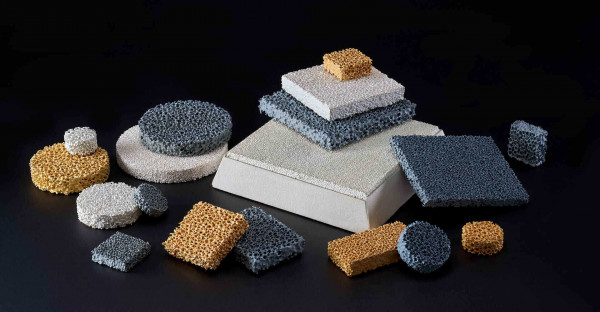Exploring The Advantages Of Zirconia Ceramic Foam Filters In Casting Processes

Casting processes play a crucial role in various industries, such as automotive, aerospace, and manufacturing. The quality of the cast components greatly depends on the control of impurities and defects during the casting process. Zirconia ceramic foam filters have emerged as a promising solution to enhance the casting quality by effectively filtering out impurities. This article delves into the advantages of using zirconia ceramic foam filters in casting processes, highlighting their superior properties, improved casting performance, and enhanced product quality.
Overview Of Zirconia Ceramic Foam Filters
Zirconia ceramic foam filters are highly porous structures made from zirconia-based ceramics. These filters possess a unique open-cell structure, providing a high surface area and interconnected porosity. The zirconia material offers exceptional thermal, mechanical, and chemical stability, making it an ideal choice for high-temperature casting applications. The filters are available in various shapes and sizes, allowing their seamless integration into different casting systems.
Enhanced Filtration Efficiency
One of the significant advantages of zirconia ceramic foam filter is its excellent filtration efficiency. The interconnected porosity and fine cell structure of these filters enable the removal of a wide range of impurities, such as oxides, slag, inclusions, and non-metallic particles, from the molten metal. The filters act as barriers, preventing the passage of contaminants, resulting in cleaner castings with reduced defects and improved mechanical properties.
Thermal And Chemical Stability
Zirconia ceramic foam filters exhibit exceptional thermal and chemical stability, allowing them to withstand the harsh conditions encountered during the casting process. These filters can operate at high temperatures without compromising their structural integrity. The zirconia material possesses a low thermal expansion coefficient, ensuring minimal dimensional changes during heating and cooling cycles. Moreover, zirconia exhibits resistance to chemical reactions with molten metals, preventing chemical contamination and preserving the purity of the casting.
Improved Casting Yield
The use of zirconia ceramic foam filters in casting processes leads to improved casting yield. By effectively filtering out impurities, the filters reduce the occurrence of defects like shrinkage, gas porosity, and non-metallic inclusions. This results in higher-quality castings with fewer rejections, minimizing material waste and production costs. The improved yield contributes to enhanced productivity and profitability for foundries and casting operations.
Enhanced Product Quality
Zirconia ceramic foam filters significantly contribute to the overall product quality in casting processes. The removal of impurities ensures the production of cast components with superior mechanical properties, such as increased tensile strength, improved hardness, and enhanced corrosion resistance. Additionally, the filters aid in achieving dimensional accuracy, reducing the need for post-casting machining operations. The improved product quality enhances the reliability and performance of the final products, meeting or exceeding industry standards.
Versatility And Application Range
Zirconia ceramic foam filters are versatile and find applications in a wide range of casting processes, including investment casting, sand casting, continuous casting, and more. They are compatible with various metals and alloys, including steel, aluminum, copper, and iron. The flexibility in shape and size allows for customized filtration solutions catering to specific casting requirements. This versatility makes zirconia ceramic foam filters suitable for diverse industries and casting applications.
